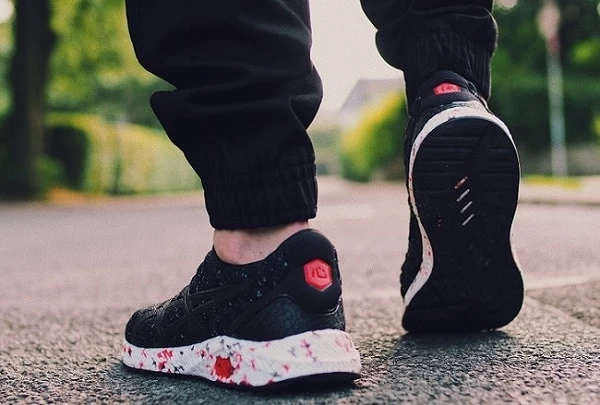The impact of routine footwear on the feet depends on the choice of shoes and how well they fit. It is important to wear shoes that are appropriate for the activity such as athletic footwear, provide proper support, and fit comfortably to reduce the risk of foot problems and injuries. Regularly checking the fit and condition of your footwear and replacing them when necessary is essential for foot health and overall well-being.The impact of routine footwear on the feet can have both positive and negative effects, depending on the type of shoes worn and how they fit.
Common foot conditions and how routine footwear choices influence them:
- Plantar Fasciitis: It is a painful condition characterized by inflammation of the plantar fascia, a ligament that runs along the bottom of the foot. Supportive footwear with proper arch support and cushioning helps alleviate the pain associated with plantar fasciitis. Avoiding flat or unsupportive shoes is crucial to prevent worsening the condition.
- Bunions: They are bony protrusions at the base of the big toe. Shoes with narrow toe boxes or high heels can exacerbate bunions by placing pressure on the joint. Wearing wider, more comfortable shoes with ample toe space will reduce discomfort and prevent further deformity.
- Hammertoes: These are toe deformities where the toes bend at the middle joint. Shoes with tight, narrow toe-boxes can worsen hammertoes. Choosing footwear that accommodates the shape of your feet and provides ample space for the toes can help prevent or alleviate this condition.
- Corns and Calluses: Corns and calluses are hardened areas of skin caused by friction or pressure. Ill-fitting shoes can create pressure points, leading to the development of corns and calluses. Wearing shoes that fit properly and have a cushioned insole can reduce the risk of these issues.
- Ingrown Toenails: Tight shoes or shoes with a narrow toe box can contribute to ingrown toenails by placing pressure on the toenails. Shoes that allow adequate toe room can help prevent this painful condition.
- Achilles Tendonitis: Achilles tendonitis is the inflammation of the Achilles tendon, which runs from the calf to the heel. Footwear that lacks proper heel support or cushioning can strain the Achilles tendon. Shoes with a cushioned heel and good arch support can help reduce the risk of this condition.
- Flat Feet: Flat feet, or fallen arches, can be exacerbated by wearing unsupportive shoes. Arch support and stability in footwear are essential for individuals with flat feet to maintain proper foot alignment and reduce discomfort.
- Diabetic Foot Problems: People with diabetes need to pay special attention to their choice of footwear. Poorly fitting or rigid shoes lead to pressure points and sores, which can be problematic for individuals with reduced sensation in their feet. Diabetic-friendly shoes are designed to provide adequate cushioning and minimize the risk of foot complications.
- Athlete\'s Foot: Moisture-wicking, breathable shoes help prevent fungal infections like athlete\'s foot by keeping the feet dry. Proper hygiene and choice of socks play a crucial role in preventing these conditions.
Select footwear that aligns with your foot condition and provides support, cushioning, and room for your feet. If you have a particular foot condition or are concerned about the impact of your footwear on your feet, consult with a best podiatrist Houston at the DeNiel Foot and Ankle Center who will offer guidance on the best footwear choices for your situation.



